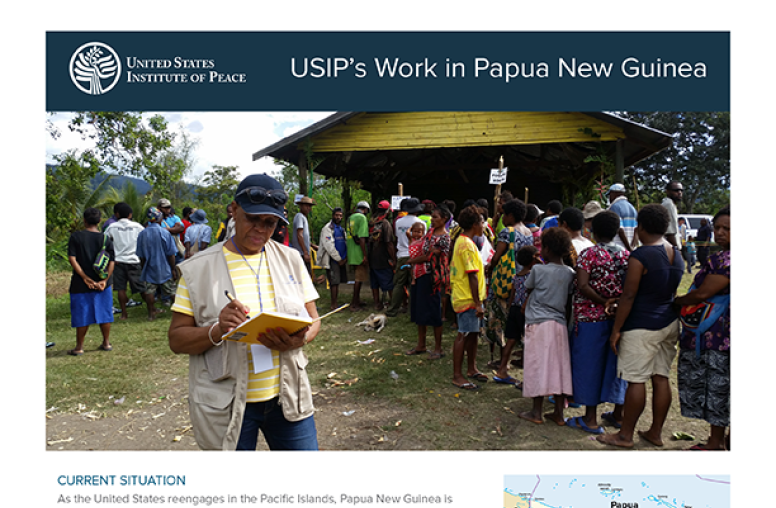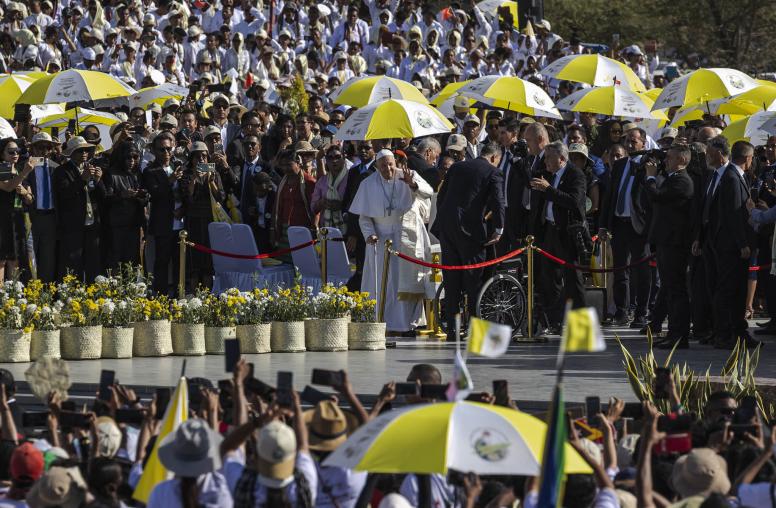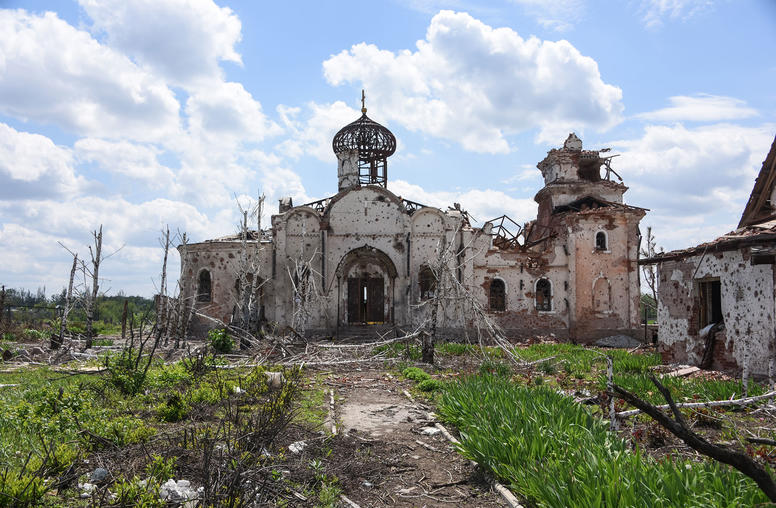 Papua New Guinea
Papua New Guinea
Papua New Guinea faces extremely high rates of violence. The country is in the process of negotiating the future political status of Bougainville, an autonomous region that is seeking independence, while both sides strive to uphold the 2001 peace agreement that ended a decade of civil conflict. It is also an increasingly important strategic partner for the United States.
USIP supports research, policy discussions and in-country programming to address drivers of violence in Papua New Guinea and to build closer U.S.-Papua New Guinea ties.
Learn more in USIP’s fact sheet on the Current Situation in Papua New Guinea.
Featured Research & Analysis

The Current Situation in Papua New Guinea
As the United States reengages in the Pacific Islands, Papua New Guinea is emerging as an increasingly important U.S. partner. It is the region’s largest country, with a landmass about the size of California and a population estimated to be somewhere between 10 and 17 million. In April 2022, Papua New Guinea was designated as one of the focus countries under the U.S. Strategy to Prevent Conflict and Promote Stability (SPCPS). In May 2023, the United States and Papua New Guinea signed a Defense Cooperation Agreement.

On Asia Trip, Pope Francis Uses his Bully Pulpit
Pope Francis wrapped up the largest, farthest trip of his pontificate last week, which encapsulated his position as a simultaneous spiritual and political figure.

Gordon Peake on the Pope in Southeast Asia and the Pacific
During his 10-day trip to the region, the pope used “straight, plain-spoken language” while discussing pressing issues — such as climate change in Indonesia and violence against women in Papua New Guinea — in the hopes of spurring change, said USIP’s Gordon Peake: “No pun intended, he has a bit of a bully pulpit in these matters.”
Current Projects

Religion and Conflict Country Profiles
USIP’s Religion, Peace and Conflict Country Profiles (RPACCs) are concise analytic overviews of the religious landscape in countries at risk of, currently experiencing or recovering from violent conflict. RPACCs are intended to be used primarily by policymakers and practitioners looking to develop rapid familiarity with the nature and status of religion in a given country of interest as well as to understand how religion intersects with conflict and peace dynamics. The RPACC series is an outgrowth of USIP’s previous work on Religious Landscape Mapping in Conflict-Affected States.